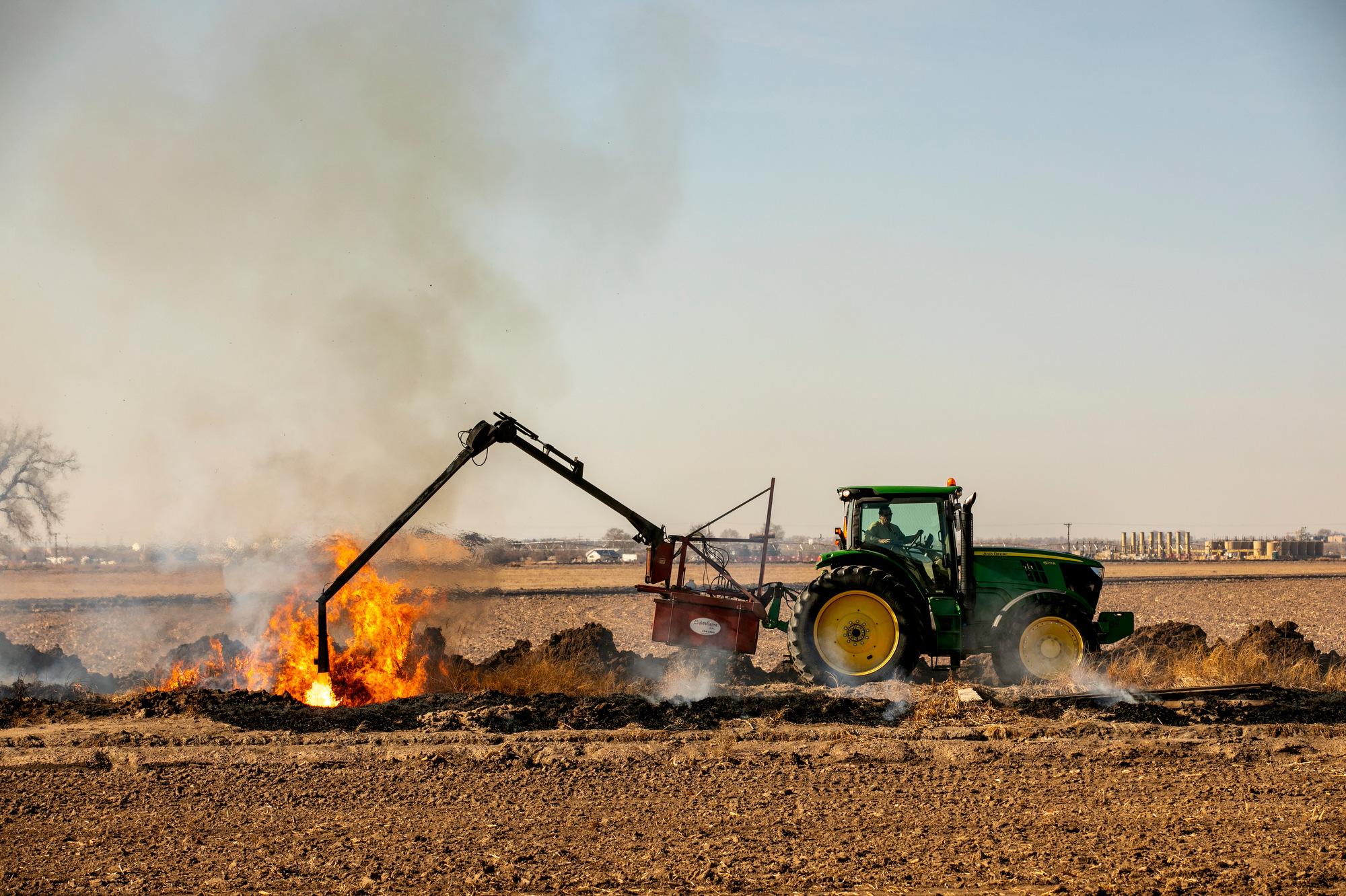
The employees of farms, ranches and other agricultural businesses are excluded from some of the protections other Colorado workers have. A sweeping new bill at the legislature would change that, granting new rights on everything from wages to union organizing.
“Generations of workers have been exploited for profit, and it is long overdue that the state of Colorado stop condoning this exploitation,” said Sen. Jessie Danielson, a Jefferson County Democrat sponsoring the bill.
The bill, known as SB21-087, passed its first committee hearing on Wednesday by a 4-3 vote, but it faces opposition from influential groups representing farmers, ranchers and others. Now some prominent Democrats are calling for more time.
The hearing stretched for hours, beginning with supporters of the bill describing substandard housing and unfair working conditions. Because of workers’ intense fears of reprisals from their employers, the bill’s supporters said, the testimony mostly came from advocates and organizers.
Opponents warned that making dramatic changes to the farm labor system would put too much pressure on an industry already squeezed by tight competition and brutal seasonal changes. Several said that they hadn’t seen any reason farmers should be held to higher labor standards.
“Sometimes you look at something and think there’s a problem when there's really not a problem,” said Brant Harrison, owner of a 70-acre organic peach farm. “I don’t know another fruit grower over on the Western Slope who treats their workers poorly.”
Danielson, the bill’s sponsor, comes from a farming family in Weld County. While most farmers treated their employees well, she said basic protections were still needed.
Among other changes, the bill would:
- Allow farm workers to unionize, bargain and strike, granting them protections other workers get from the Colorado Labor Peace Act.
- Require agricultural employers to pay overtime when workers exceed 12 hours per today or 40 hours per week.
- Require agricultural employers pay the state minimum wage of $12.32 an hour. Currently, farms and ranches are exempted, instead, they are required to pay only the federal minimum wage. However, immigrant workers on H-2A visas already receive higher wages.
- Limit use of the short-handled hoe, a tool that has become a symbol of oppression because workers bend over painfully to use it.
- Create new protections for whistleblowers and set new standards for housing and health.
The bill’s sponsors also include Rep. Karen McCormick and Rep. Yadira Caraveo, all Democrats. It’s the broadest and most potent agricultural labor bill proposed in years, and it followed in part from organizers’ efforts to help agricultural workers through the pandemic.
“We’ve always known these needs. The pandemic just created this opening of society and policymakers that acknowledge this need,” said Fatuma Emmad of Project Protect Food Systems.
Exemptions for farm labor are common across states. They are rooted in a system devised in the 1930s when federal lawmakers excluded agriculture from new labor laws. The 2017 USDA agricultural census estimated that Colorado's agriculture industry sold about $7.5 billion of agricultural goods annually, employing about 37,000 workers on farms.
“Farmworkers were intentionally excluded from the laws that provide basic worker protections in order to preserve a system built on the racially motivated exploitation of farmworkers and domestic servants for their cheap labor,” said Jennifer Rodriguez of Colorado Legal Services. She described visiting farmworkers in Colorado who ran out of food because their employers wouldn’t provide transportation to stores.
Other states have adopted similar laws. Both California and South Dakota hold farms to their state minimum wage, although the South Dakota wage is only $9.45. Several states also have overtime requirements for agricultural workers, and about 15 states allow farm workers to organize.
Opponents of the bill insist that Colorado, with its short growing season, is different. Farmers and ranchers said overtime requirements would force them to simply hire more workers to avoid extra costs, and that the short-handled hoe is the best option for weeding around closely-planted crops.
“We’re up against the wall when we have to compete against California, and other countries. And that’s where we need a little input on how we can construct this thing,” said Dave Petrocco Sr., owner of a family vegetable farm in Brighton.
“We would like to work with you and have something palatable where we can succeed and you as well can do your public servant duty, like you have been.”
Danielson has offered a number of amendments, including one that would allow the continued use of the short-handled hoe in many situations. Another would strike a requirement that businesses specifically provide filtered water to workers.
The bill heads next to the Senate Appropriations Committee, and it would eventually need the support of a majority of lawmakers in the House and Senate to proceed, along with the governor’s signature.
One prominent Democrat, Sen. Kerry Donovan, said that the bill needed more work. She suggested that some of its issues would be better handled by rulemaking processes instead of being detailed in a law.
“On all the major ideas behind this bill, I think it is important to have really widespread stakeholding work — to identify the problem set and then work with the specific area of agriculture to make sure that we are paying workers fairly and having a safe work environment,” she said in an interview.









